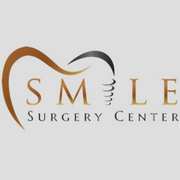
Estimated to affect nearly 18 million Americans, sleep apnea is a serious condition that impairs a person’s ability to breathe properly throughout the night. In most cases, this condition occurs because the throat muscles relax and restrict the airways. As a result, this disorder causes a person to wake up several times a night to reestablish breathing, disrupting sleep and many important health functions. Fortunately, if you suffer from this condition, there are several ways you can find relief—including oral surgery. If you’re curious about sleep apnea and why you should treat it, here are a few important details to know.
Why Is Sleep Apnea Dangerous?
People with sleep apnea will wake periodically throughout the night due to a lack of oxygen. When this happens, the individual is unable to complete natural sleep cycles, resulting in severe fatigue, stress, depression, and compromised immune health. As the National Institutes of Health explains, sleep apnea can also increase a person’s risk for developing chronic medical conditions, such as asthma, heart disease, and cancer.
What Are the Signs of Sleep Apnea?
 Chronic snoring and restlessness are the most common signs and are usually observed by partners who share a bed. You might also want to talk to a doctor about the condition if you find that you experience constant fatigue, nighttime teeth grinding, headaches, or stress. Typically, you will need to participate in a lab-controlled sleep study to determine if you have the disorder.
Chronic snoring and restlessness are the most common signs and are usually observed by partners who share a bed. You might also want to talk to a doctor about the condition if you find that you experience constant fatigue, nighttime teeth grinding, headaches, or stress. Typically, you will need to participate in a lab-controlled sleep study to determine if you have the disorder.
How Might Oral Surgery Improve the Condition?
Initially, many people with sleep apnea will manage the condition by using an oral dilator or a CPAP machine to keep the airways open throughout the night. However, these options can be cumbersome, costly, and inconvenient for many and may not offer a long-term cure.
If you’re looking for a more comprehensive way to treat sleep apnea, oral surgery is another option to explore. Depending on your specific needs, your dentist or doctor may recommend soft palate surgery—a procedure that reduces tissue size, removes tonsils, and repositions throat muscles to expand the airway. In some cases, oral surgeons may opt to move the tongue forward to prevent it from falling back into the throat during rest.
If you have severe sleep apnea, corrective jaw surgery may also be recommended. In this procedure, the jaws are moved forward to create more room for breathing in the mouth.
When standard sleep apnea treatments aren’t working for you, talk to your doctor about your oral surgery options. If approved, the specialists at Smile Surgery Center can help you explore safe and effective procedures—including jaw surgery—to permanently improve your airways. Visit this practice online to learn more about their sleep apnea treatments, wisdom teeth removal, bone grafting, and other oral surgery options they offer in Anchorage, AK. To schedule a complimentary consultation, call a friendly staff member at (907) 644-4772.
About the Business
Have a question? Ask the experts!
Send your question

